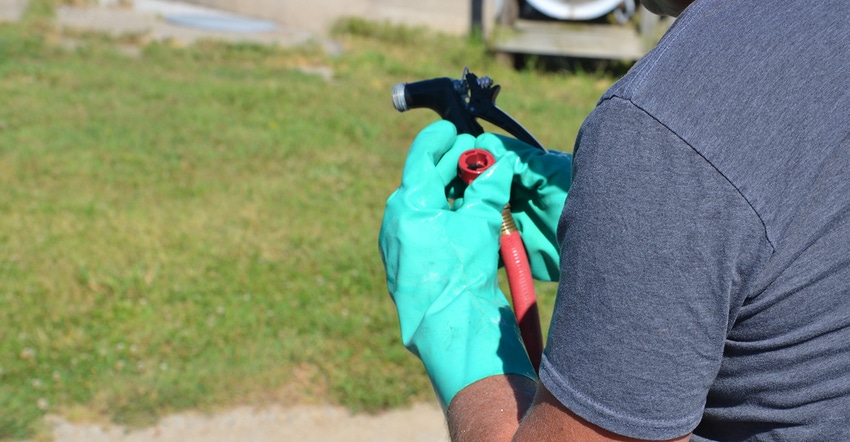
Working around chemicals doesn’t have to be frightening or intimidating. However, chemicals do command respect, and that includes following label directions and not skipping any steps when it comes to protecting your health and the health of the environment.
That’s the message Fred Whitford tries to convey to groups whenever he talks about herbicide effectiveness, avoiding contamination and working around herbicides carefully.
Here are three no-nos Whitford says you simply can’t afford to do if you’re serious about spraying.
1. Leave off your gloves. You must wear gloves! It’s just common sense, Whitford says. Yet he often finds farmers who work with chemicals without having the proper personal protective wear, including gloves designed for handling chemicals. For example, you don’t want to wear gloves made of cloth or a similar material. They could absorb herbicide and allow your skin to eventually be contaminated.
2. Use hoses that may be contaminated and haven’t been cleaned properly. Many sprayers are equipped with hoses. Rubber hoses aren’t solid, Whitford says. They can absorb chemical over time. He advises cleaning hoses carefully when doing routine sprayer cleanout and cleanup when switching from one chemical to another. Today, some people are switching to stainless-steel tubing instead of using hoses when practical to avoid this potential source of contamination, he adds.
3. Skimp on tank cleaners if the label requires them. Dicamba is one product where you must use a tank cleaner, Whitford says. Check product labels to see what the manufacturer recommends as far as adding a tank cleaner. Other herbicides may also require use of a tank cleaner, Whitford says.
When cleaning a sprayer between chemicals, the tank cleaner is typically added on the third rinse, he notes.
About the Author(s)
You May Also Like




